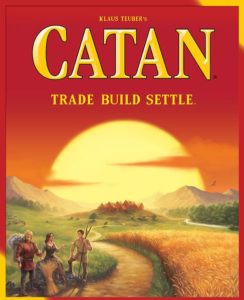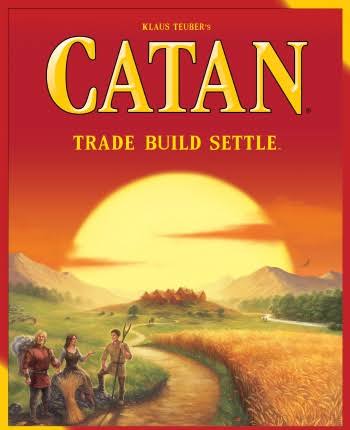
Why Settlers of Catan Brings Out Our Competitive Side
Yes, there really is a competitive scene for Settlers of Catan—and we take it way too seriously. Analyzing hundreds of matches, debating the smallest moves, and dissecting strategies like poker or chess? That’s just another day in the life of a dedicated Catan player.
If you’re here, chances are you’re like me: someone who hates losing at Catan. Other games? Sure, losing is fine. But in Catan, a bad trade or missed opportunity haunts you long after the board is packed away. This guide isn’t about the basics; it’s for players looking to level up, break winning streaks, and dominate game night.
Whether you’re prepping for a family game night or sharpening your skills for a tournament, these tips will stick with you. Let’s jump into the strategies.
General Strategies: Laying the Groundwork for Victory
1. Adopt the Right Approach
Your overall strategy will often hinge on the board’s layout and available resources.
- The Balanced Approach: Diversify your resource production across different numbers and materials to minimise reliance on trades. While flexible, this strategy might lack the efficiency needed to win against focused opponents.
- The Wood/Brick Strategy: Prioritise roads and settlements to expand quickly and secure Longest Road. Beware of over-committing to roads without a plan for your final points.
- The Ore/Wheat Strategy: Focus on cities and development cards, setting yourself up for Largest Army. Slower early growth is the trade-off for strong late-game potential.
2. Adapt Based on Your Opponents
Pay attention to what other players are prioritising. If everyone is competing for the same resources, consider adopting a contrarian strategy to capitalise on neglected opportunities.
3. Situational Tactics
- The Resource Control Strategy: Dominate a scarce resource like brick or ore to gain strong leverage in trades.
- The Port Strategy: Focus on producing a single resource in abundance and utilise ports to trade efficiently with the bank.
4. Bluffing Basics
Bluffing can be a game-changer:
- Pretend you’re aiming to build somewhere to influence road placements.
- Act indifferent to trades you desperately need to secure better terms.
- Overstate your development cards (e.g., “I’ll use my Knight”) to deter robbers.
Placement Tips: Building Your Foundation
5. Prioritise High-Yield Locations
The numbers on your starting intersections matter. Aim for combinations like 6, 5, and 9 for consistent resource production. Use the dot values on tiles to gauge their probability.
6. Diversify Your Numbers
Avoid clumping your settlements around a few numbers. Spread across multiple probabilities to ensure steady production throughout the game.
7. Secure Strategic Spots
- Prioritise intersections that align with your overall strategy (e.g., wood and brick for expansion or ore and wheat for cities).
- Consider how your placement affects others. If you can block key expansions while strengthening your own position, you’ve already gained an edge.
8. Involve Yourself in Others’ Initial Placements
Guide opponents toward placements that minimise competition for your strategy. Propose alternatives that appear beneficial to them but serve your long-term goals.
Development Cards: Timing is Everything
9. Know When to Play Your Cards
- Knights: Use them strategically to defend your tiles or earn Largest Army. The mere threat of a Knight can deter opponents from targeting you.
- Monopoly: Save for late-game when resource pools are larger, or use it for a game-changing move.
- Year of Plenty: Treat this as the best port trade in the game, helping you get exactly what you need.
10. Keep Your Cards Hidden
Don’t reveal development cards immediately after buying them. Use subtlety to keep opponents guessing your intentions.
11. Track Opponents’ Development Cards
Pay attention to what others pick up to anticipate their next moves. Assume every card is a potential victory point unless proven otherwise.
The Robber: A Game-Changer
12. Defend Against the Robber
- Spread your production across multiple tiles to avoid crippling losses.
- Share tiles with opponents to reduce the likelihood of being targeted.
- Maintain good relations—jerks get robbed more often.
13. Place the Robber Strategically
- Target players who are close to winning or who control key resources.
- Avoid provoking unnecessary retaliation by carefully choosing your targets.
- Consider placing the robber on the player who acts before you in the turn order to disrupt their next move.
Trading: The Art of Negotiation
14. Offer Fair Trades
Players are less likely to trade with you if you’re perceived as unfair or manipulative. A good trade benefits both parties, even if you gain a slight edge.
15. Trade on Your Turn
Always trade during your turn so you can immediately use what you gain. This limits your opponents’ options and gives you a timing advantage.
16. Speak Up During Others’ Trades
If a trade heavily favours one player, point it out. Offer alternative deals that include you to disrupt the original exchange.
17. The Monopoly Trade Trick
Trade away a resource you plan to monopolise, then use the Monopoly card to reclaim it all. This is risky but can be devastatingly effective.
Advanced Tactics for Mastery
18. Track Resources Like a Pro
Pay attention to recent rolls and trades to estimate what resources others have. This knowledge helps you anticipate their moves and block key actions.
19. Manage Table Presence
- Stay low-profile when you’re close to winning. Subtle actions like picking up cards in one motion can conceal your growing power.
- Engage socially to distract opponents or build goodwill for future trades.
20. Know When to Speak Up
Commenting on opponents’ moves can shift focus away from you or disrupt their plans. Use this sparingly to avoid painting a target on yourself.
Conclusion: The Path to Mastery
Settlers of Catan is more than a game of luck; it’s a dynamic mix of resource management, negotiation, and psychology. By mastering these advanced strategies, you’ll set yourself apart at game night or even on the tournament stage.
Remember, success isn’t just about winning—it’s about understanding the intricacies of the game and learning to adapt. Now go forth, roll the dice, and dominate the board!

